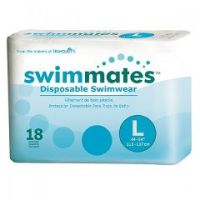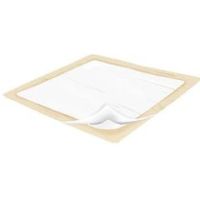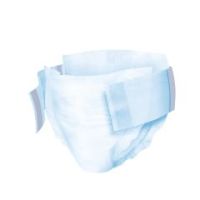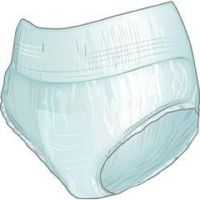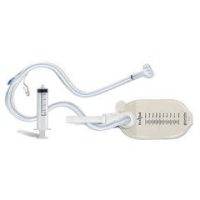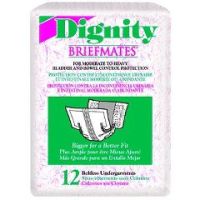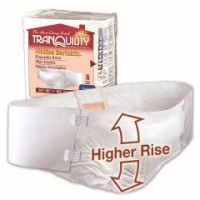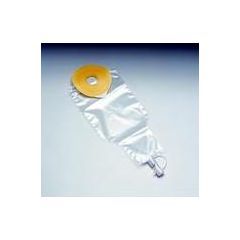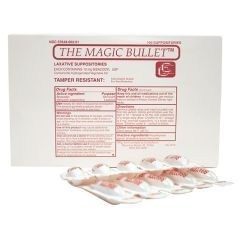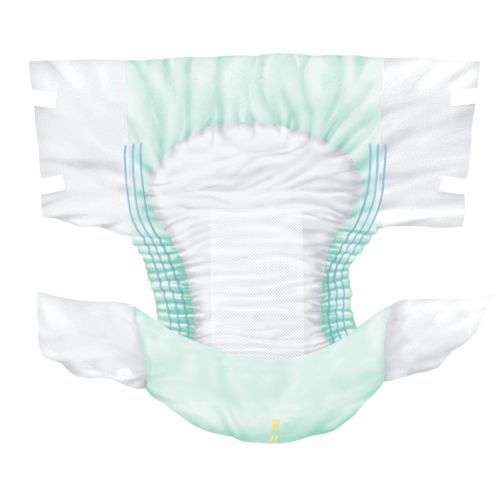
FECAL INCONTINENCE MANAGEMENT
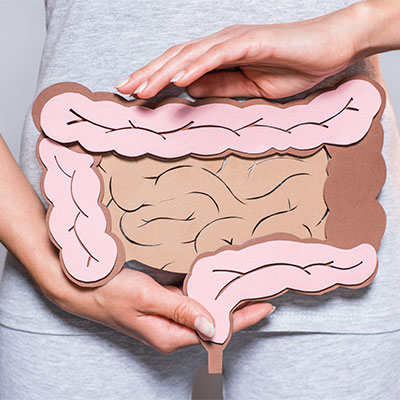

Fecal Incontinence Causes
Bowel control involves a combination of proper anal sphincter pressure, rectal sensation, and rectal storage capacity. Essentially the sphincter contracts and expands based on the messages received by the brain that the rectum is full. If any one of these three functions is misfiring, one of two types of fecal incontinence can occur, urge or passive.
Urge Fecal Incontinence - A result of damage to the anus, rectal, or pelvic floor muscles, a person is unable to control the timing of stool release despite knowing they have to go.
Passive Fecal Incontinence - A lack of rectal sensation prevents a person from knowing they are passing stool or mucus.
Common causes include diarrhea from inflammatory bowel disease and irritable bowel syndrome as well as rectal prolapse, constipation that weakens rectal muscles over time, rectal surgery or trauma, nerve damage from spinal or brain injury, and neurological illnesses like dementia, Multiple Sclerosis, Parkinson's Disease, stroke, or Type 2 Diabetes. Other conditions such as childbirth, hemorrhoids, and a lack of physical activity are often short-lived and easily treated.
Fecal Incontinence Treatments
Although treatment plans will vary depending on the severity and underlying cause of fecal incontinence, effective treatment is readily available. Please consult a physician to determine the best course of action for your personal condition. Treatment options may include:
- Dietary Changes
- Medicine including prescription and over-the-counter laxatives, stool softeners, or anti-diarrheals
- Pelvic floor exercises
- Bowel Training
- Biofeedback Therapy
- Sacral nerve stimulation
- Surgery including sphincteroplasty, artificial anal sphincter, colostomy or other rectal surgeries


BOWEL INCONTINENCE PRODUCTS


A premium European adult incontinence product that offers high level of leakage security and optimum comfort for end users. Features include specially designed leakage barriers, gentle Air Plus backing, designed to allow frequent pad changes, and improved care with lower costs.


Provides an excellent alternative to traditional methods of managing fecal incontinence such as pads, diapers, fecal pouches, and rectal tubes. Flexi-Seal FMS consists of a silicone catheter, syringe, and collection bag. At one end, the soft silicone catheter has a retention balloon that is inserted into the rectum. At the opposite end, the catheter has a connector for attaching the collection bag.
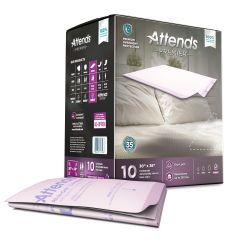

Dry-Lock® Containment Core, constructed of highly absorbent materials, helps keep skin dry and furniture protected. The strong backsheet material gives the ability to reposition patients weighing up to 350 lbs., while the breathable backing allows for use on a low airflow mattress.


Designed for heavy incontinence. A softer and more comfortable brief with superior absorbency. Excellent leakage protection provides a safe skin environment. Peach Mat core guarantees skin dryness, odor control, and pH neutralization. Komfort Monitor® moisture volume indicator, refastenable tape tabs for easy opening and closing, Kufguards® for containing bowel incontinence. latex-free.
BOWEL INCONTINENCE HOME REMEDIES


Home remedies are often the first line of defense for those suffering from mild fecal incontinence; but because bowel incontinence can be a sign of a more serious underlying condition, always consult your doctor before trying any home remedies. Popular home remedies include:
- Dietary Fiber: Eating foods rich in fiber like vegetables, fruits, whole grains, legumes, and high-fiber cereals can help to bulk up stool and reduce the risk of leakage. Over-the-counter fiber supplements are also available.
- Limit Caffeine Intake: Caffeine is a stimulant that can affect the rate of speed at which stool travels through the colon, limiting the time to bulk up the stool.
- Kegel Exercises: Strengthening the pelvic floor muscles can help to control the bowel. As consistency is key, aim to complete your exercise routine multiple times per day, for best results.
- Pads, Protective Underwear, & Ointments: Incontinence pads, adult diapers, and barrier ointments will help provide a sense of security and protect your skin from irritation.
- Over-the-Counter Medications: Anti-diarrheal medications can be effective in some cases; however, these products will not work if you have a weakened sphincter.
- Bowel Schedule: Placing yourself on a regular routine to pass stool can help to reduce sudden uncontrollable urges.
- Keep a Journal: By recording what you eat and drink each day, you may be able to determine which foods and beverages trigger your incontinence.
- Suppositories & Enemas: These products can help to regulate your bowel movements but should be used infrequently.
Although these options can be effective, it is imperative that a medical professional take part in planning your treatment whether you choose to try home remedies or other alternatives.
FREQUENTLY ASKED QUESTIONS
What is fecal incontinence?
Fecal incontinence, or bowel incontinence, occurs when an individual is unable to control the muscles around the anus causing stool or feces to leak from the rectum unexpectedly. Fecal incontinence can range from occasional leakage to complete loss of bowel control*. Reasons for this condition include everything from diarrhea, food poisoning, or nerve damage to recently giving birth or aging. While treatment will vary in type and length depending on the underlying cause of the condition, fecal incontinence care products can help make life more manageable in the meantime.
What causes bowel incontinence?
Bowel incontinence can be caused by aging, declining health conditions like kidney and liver disease, colon cancer, immobility, food poisoning, childbirth, the stomach virus and many other reasons. It is often a temporary issue, but in some cases can be a prolonged experience easily managed with quality bowel incontinence products. For some patients, fecal incontinence treatments like changes in diet, over-the-counter or prescription medications, bowel training treatment and exercises can help restore bowel control.
What can be done for bowel incontinence?
Bowel incontinence is a medical condition whereby bowel movements, or feces, may leak out of the rectum without warning. Depending on the underlying medical reason for the condition, treatment will vary. Your healthcare provider may recommend anti-diarrheal medication, laxatives, kegel exercises, electrotherapy, or possibly surgery to correct the condition. In the meantime, bowel incontinence products are available to manage daily life discreetly and comfortably. Some popular products include adult diapers, bowel incontinence protective underwear, disposable bowel incontinence briefs, and bowel incontinence pads to collect unexpected fecal leaks, provide odor control, and reduce irritation and rashes. When patients are bedridden or immobilized, absorbent bed pads or a fecal management system can be employed to collect feces and divert fecal matter away from the anus.
What are the best pads for bowel incontinence?
The best bowel incontinence pads will confidently absorb fecal matter and associated odors while contouring the body well for maximum discretion and protection. A well-designed pad like Tranquility's TopLiner Super Booster bowel incontinence pads offers comfort, prevents leaks, reduces the potential for rashes and skin irritations, and eliminates the need for nighttime changes.
What is a fecal management system?
A fecal management system diverts liquid feces and semi-firm stool away from the anus into a closed-system to protect both the environment from fecal contamination and the patient’s skin from irritation and possible infection. Used temporarily in severe uncontrolled cases of diarrhea, a catheter tube is inserted into the anus and is held in place with an inflated balloon. Much like urinary catheters, the tube is connected to an external collection bag.
How do bowel incontinence products work?
Bowel incontinence products are essentially the same idea as a baby’s diaper or female’s menstrual pad. They absorb the liquid feces and hold the solid waste that the patient is unable to hold back. For proper fecal incontinence care, patients need to be changed often and should be outfitted with products that absorb as much as possible, leaving very little on the skin itself. If the fecal matter remains in contact with the skin for too long, it will cause serious skin irritation, especially if the patient will be immobilized for a long period.
MEDICAL ADVICE DISCLAIMER
The information, including but not limited to text, graphics, images, charts, and any other material on this site, is intended for informational purposes only and does not take the place of medical guidance provided by your physician. No information on this site is intended to be a substitute for professional medical advice, diagnosis, or treatment. Please consult a qualified medical professional about your condition or circumstances before undertaking a new healthcare regimen.
